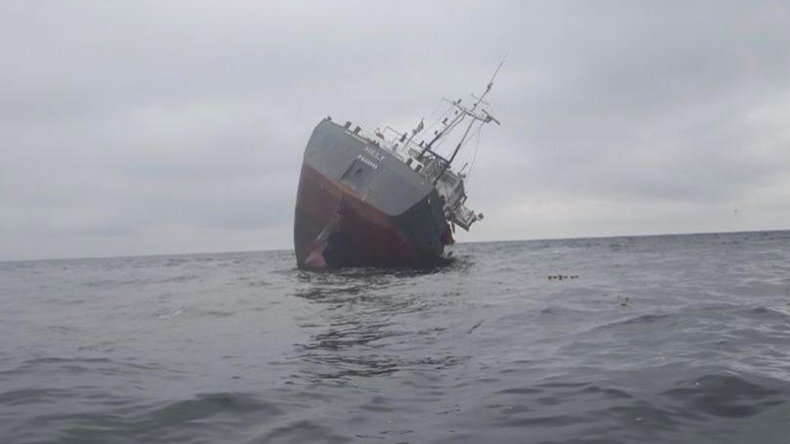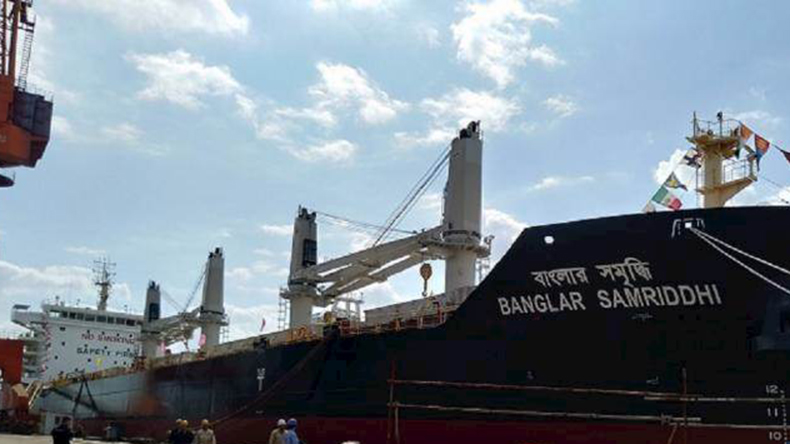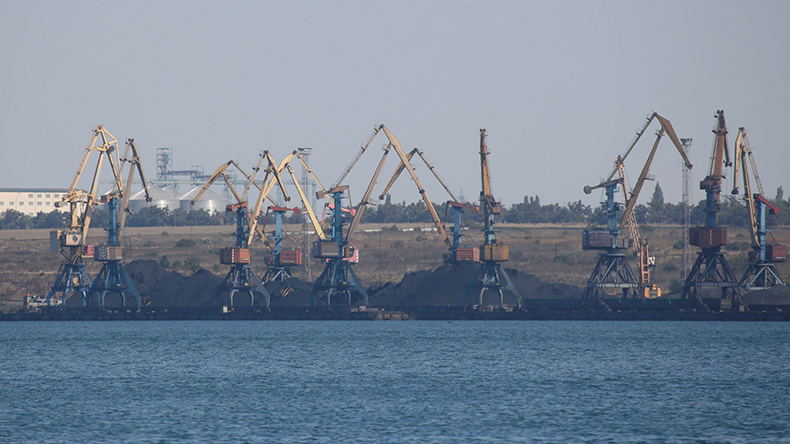Attacks on vessels off Ukraine to likely trigger war risk clauses
Confirmed incidents include Russian missile hitting Bangladesh-flagged Banglar Samriddhi near Mykolayiv, killing third engineer, and sinking of Panama-flagged Helt off Odessa
‘There is clearly a risk to vessels trading in the Black Sea and Sea of Azov and that probably will give rise to engagement of war risk clauses,’ says lawyer
THE level of violence generated by Russia’s invasion of Ukraine has now reached the point where it likely triggers BIMCO’s Conwartime and Voywar clauses, a leading law firm has warned.
In terms of charterparty and insurance law, “war” basically carries its everyday English meaning, including serious possibility of being exposed to danger.
It is increasingly apparent that the degree of hostilities has reached this threshold.
Reported incidents so far in the Ukraine assault include a Russian missile hitting Bangladesh-flagged Banglar Samriddhi (IMO: 9793832) near Mykolayiv, killing the bulk carrier’s third engineer. Another ship, the Panama-flagged Helt (IMO: 8402589), has sunk after being shelled or hitting a mine off Odessa.
Ukrainian ports have since last month been designated war risk areas by both the Joint War Committee of the Lloyd’s and London companies markets and marine mutuals specialising in war risk.
Owners now have a legal means to refuse orders where they fear for their ship, or even, more pragmatically, where carrying out instructions is simply unprofitable.
Alexander Brandt, lead member of the sanctions practice at Reed Smith, was speaking at a webinar on the rapidly evolving Russian sanctions situation this morning.
Increasingly there is a general reluctance to do business with Russia, participants heard.
The reasons range from difficulties in arranging trade credit and the physical risk to vessels to trying to second guess what the sanctions picture will be in a week’s time.
Additional war risk premiums for calls in the region are already in place, and some owners are understood to have invoked force majeure clauses that provide a complete walk-away answer, he said.
Charterparties may include a wide range of war risk clauses, but BIMCO’s conwartime and voywar clauses — designed for time and voyage charters respectively — are two of the most common.
Their applicability largely depends on the facts on the ground and the concrete risks to the physical safety of a vessel or its crew.
But recent days have seen damage to several ships, including Banglar Samriddhi and Helt.
“There is clearly a risk to vessels trading in the Black Sea and Sea of Azov and that probably will give rise to engagement of war risk clauses,” Mr Brandt said, with the caveat that the position may be more nuanced in Russian Black Sea ports.
Another issue owners should give thought to is Ukrainian crews calling at Russian ports.
The BIMCO clauses provide for ongoing warranties that both parties are not sanctioned, which both sides will need to keep a close eye on in a rapidly changing sanctions environment. The need is for ongoing counterparty due diligence.
“The other question is what happens practically — and this is always a nightmare for those involved — when sanctions change while cargo is on board the vessel.
“It is obviously far quicker and cleaner if the vessel is in ballast, the clauses are clearer then. The BIMCO clauses provide charterers with a 48-hour window to provide alternative haulage orders. Obviously, if the counterparty is designated it is going to be very difficult. What does that mean, and where do you drop the cargo off?”
The clauses do not expressly provide that the cargo should be returned to the loadport, although that is often what happens in practice.
Owners and charterers are advised to look closely at the wording of the clause, and not to act solely on media reports of what may be happening in Ukraine.
“When you’ve got contractual commitments for high stakes, there is a real aversion to calling at Russian ports full stop now. So, exercising your clauses wrongly obviously has serious ramifications,” Mr Brandt said.







